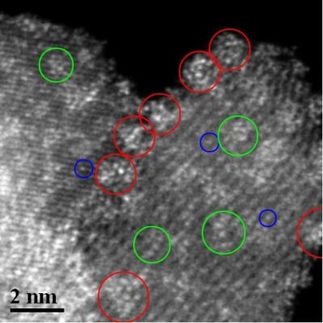Improving the degradation of toxic hydrocarbons
Initiation of a worldwide research project under the direction of the HZI
Advertisement
The world-wide project "MAGICPAH", coordinated by the Braunschweiger Helmholtz-Zentrums für Infektionsforschung (Helmholtz Center for Infection Research in Braunschweig- HZI), is examining how bacterial communities are able to support the degradation of toxic polycyclic aromatic hydrocarbons. "MAGICPAH" is a collaboration of thirteen partners from nine countries. Research institutions and industrial enterprises have initiated the project today at the HZI. The significance of this project is reflected in the gravity of the cargo ship disaster on the Australian "Great Barrier Reef". The reef was threatened in April 2010 by four tonnes of heavy oil that escaped from the tanker.
Hydrocarbons chemicals that consist only of the elements carbon and hydrogen. They play a very important role world-wide as fossil fuels. An especially significant sub-group are the so-called "polycyclic aromatic hydrocarbons" (PAH). These poorly degradable, often toxic and carcinogenic hydrocarbons are responsible for, among others, the contamination of soils. They can be found in crude oil and in high abundance in heavy oil; they are thus readily capable of endangering marine environments.
The project is intended to initially analyze microbial diversity and the molecular processes, which play a significant role in the removal of PAH contaminants from soils, sediments and waste waters. This however already causes problems as the majority of bacteria in soils or marine ecosystems cannot be cultivated. "This hitherto unutilized diversity of microbial activities can only be visualized by means of so-called cultivation-independent methods", says Dietmar Pieper, head of the research group "Microbial Interactions and Processes". These cultivation-independent methods make use of the micro-organisms' capabilities without having to previously propagate them in the laboratory. "The information collected here in different experimental systems will be used for the design of new knowledge-based strategies for the mitigation of ecological damage caused by polycyclic aromatic hydrocarbons (PAHs) in various habitats. Furthermore, our methods enable direct access to new metabolic reactions that can be used for industrially relevant products", concludes Dietmar Pieper.
The EU is funding the project with three million euros over the next four years. In addition to the HZI, the partners from industry originate in Italy and the Czech Republic, while the partners from the research centres originate in Italy, Spain, Great Britain, Germany, Denmark, France, Colombia and Canada.
Most read news
Topics
Organizations
Other news from the department science

Get the chemical industry in your inbox
By submitting this form you agree that LUMITOS AG will send you the newsletter(s) selected above by email. Your data will not be passed on to third parties. Your data will be stored and processed in accordance with our data protection regulations. LUMITOS may contact you by email for the purpose of advertising or market and opinion surveys. You can revoke your consent at any time without giving reasons to LUMITOS AG, Ernst-Augustin-Str. 2, 12489 Berlin, Germany or by e-mail at revoke@lumitos.com with effect for the future. In addition, each email contains a link to unsubscribe from the corresponding newsletter.




























































